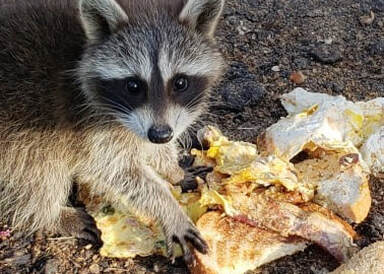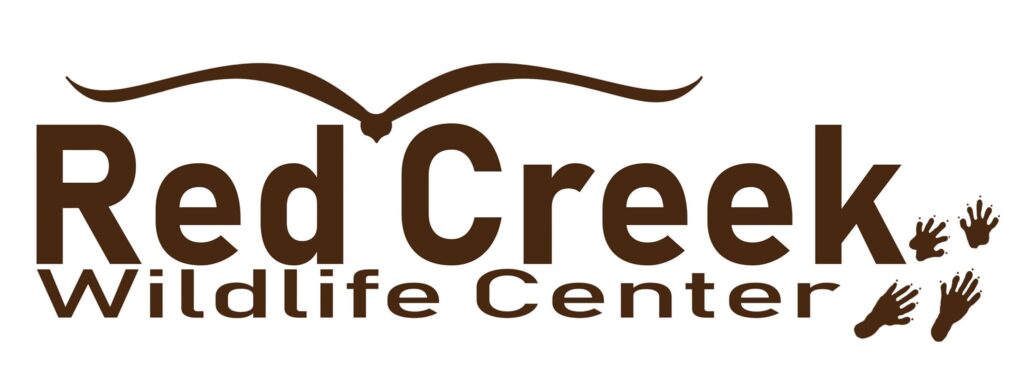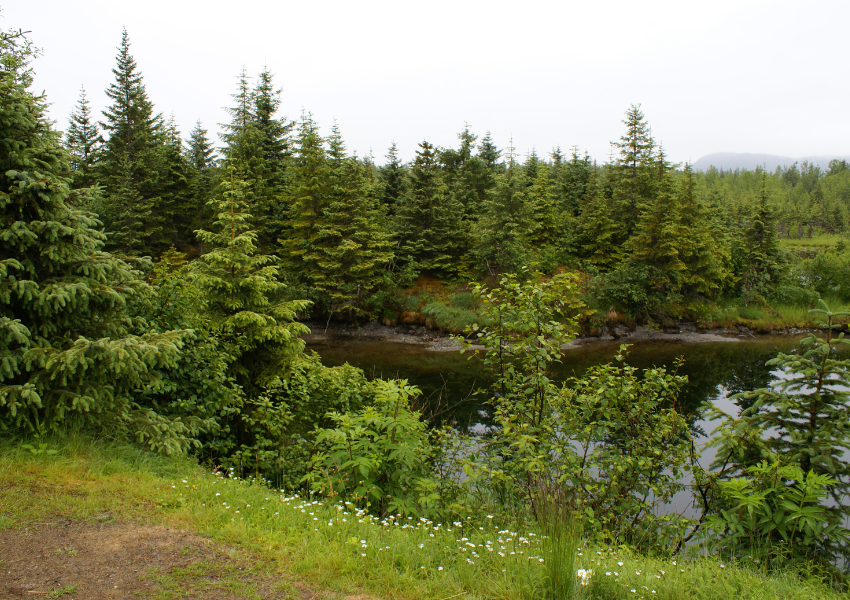
What it takes to care for wildlife
This is how much it costs from rescue to release to care for wildlife. For basic medical treatment, appropriate food/formula, and bedding:
Fawns
$500 or more to raise a baby deer

Photo credit: Emily Case
Foxes
$75 per week

Hawks and owls
$50 per week

Photo credit: Chet Gottfried, Ron Crandall, and Sue DeArment
Your donations go directly to the care of our wild patients and non-releasable educational ambassadors.
– Raven Ridge Wildlife Center, Schuylkill County
Raccoons
$200-500 per kit

Rabbits
$150 in formula to nurture baby rabbits for 60 to 90 days

Squirrels
$150-200 for formula to nourish a baby squirrel to release

Breakdown of how much it costs to nurture a bird
- $12,000 – average food costs per year
- $1,000 – veterinary care for the year
- $500 – food costs per WEEK from May–September
- $90 – average amount it costs to care for an insectivore (chimney swift, barn swallow, tree swallow, etc)
- $45 – amount it costs to raise a neonate into adulthood
For example, curing an owl of West Nile Virus can cost up to $500. Repairing and rehabilitating a broken bone on a bird of prey can run upwards of $1,000. Enclosures for mammals and birds can cost in the range of $5,000.

Every penny that we receive helps to buy food, medications, and shelter for our animal patients.
Please spread the word to your friends and family!– Diamond Rock Wildlife Rehabilitation Clinic, Chester County
Food, cleaning, and medical supplies needed by wildlife rehabs
Food
- Dry puppy, dog, or kitten chow
(not senior, indoor, or special diets) - Unsalted peanuts in the shell
- Fresh fruits and vegetables
- Fox Valley Raccoon Formula
- Fruit/vegetables/chicken baby foods
- Bird Seed
- Black Oil Sunflower
- Shelled Corn
- Scratch Feed
Housing
- Newspapers
- Heating pads
- Surgical drapes
- Bales of straw or hay
- Animal carriers and cages
- Rubbermaid storage containers
Enrichment
- Educational baby and toddler toys
- Cat climbing trees
- Dog and cat toys
Medical supplies
- Lactated ringers
- Syringes
- Needles (all gauges)
- Latex exam gloves
- Sterile saline solution
- Vet wrap, cling wrap
- Cotton balls
- Q-tips
Cleaning supplies
- Plain white paper towels
- Unscented liquid laundry detergent
- Clorox brand bleach
- Clorox Clean-Up liquid
- Dawn dish detergent
- Plain white Kleenex
- Clorox wipes
- Trash bags
Miscellaneous
- Unscented baby wipes (alcohol free)
- Wood bark mulch
We’re a non-profit, statewide telephone dispatch system for capturing injured and orphaned wildlife in the state of Pennsylvania. It is solely run by volunteers and we rely on the generosity of our donors and sponsors to cover the expenses incurred for our operations. These include the annual cost of the dispatch system, and training and supply costs for our volunteers.
– Wildlife In Need of Emergency Response of Pennsylvania, Crawford County
Your donation supports the treatment of over 800 injured and orphaned wildlife patients a year, working towards release back into the wild; the care and training of wild educational ambassador animals who inspire thousands of people every year; and educational and outreach work, including live-animal programs, to inspire the community to appreciate our wildlife.
– Tamarack Wildlife Center, Crawford County
How to support wildlife rehabs in Pennsylvania
Find out where your local wildlife rescue and rehab is and be sure to keep their phone number handy in case you ever have a wildlife encounter (e.g., orphaned, injured wildlife in need).

Pennsylvania statewide
Wildlife In Need of Emergence Response of Pennsylvania

Montgomery County
Philadelphia Metro Wildlife

Venango County
Skye’s Spirit Wildlife Rehabilitation Center

Diamond Rock Wildlife Rehab

Westmoreland County
Wildlife Works

Carbon County
Carbon County Environmental Education Center

Centre County
Centre Wildlife Care

Helping Hands Wildlife Center

Stormy Oaks/Wildbird Recovery

Monroe County
Pocono Wildlife Rehabilitation and Education Center

Lancaster County
Raven Ridge Wildlife Center

Schuylkill County
Red Creek Wildlife Center

Tamarack Wildlife Center

West Shore Wildlife Center

Keep in touch!
Stay tuned for occasional updates on wildlife challenges and progress in the United States.
Articles for wildlife-lovers
Roadkill is a horrific yet common problem that affects many different species of animals, but some animals are more susceptible to being …
Roadkill is a common and tragic problem that affects both wildlife and humans. It occurs when animals are hit and killed by …
Protecting wildlife habitat is essential for the preservation of biodiversity and the health of our planet. Habitat destruction is a major threat …
If you’re a nature lover, you may want to help wildlife in your garden. There are many ways you can do this, …


